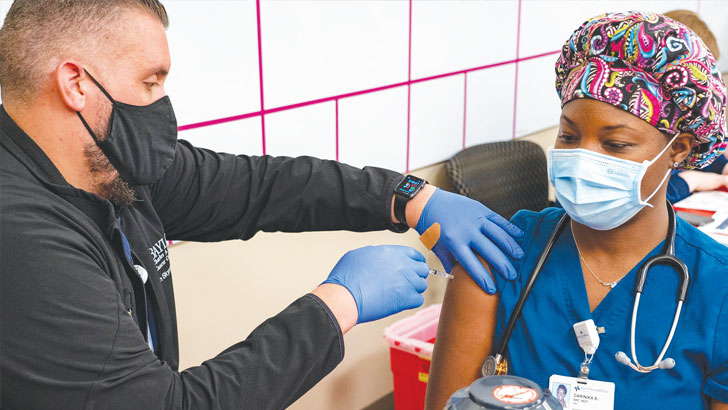WHO cautions on Covid-19 vaccine
As Malawi awaits the first consignment of the AstraZeneca vaccine for Covid-19, the World Health Organisation (WHO) has stressed the need for countries to determine the effectiveness of vaccines against the new Covid-19 variant.
W H O ’ s w a r n i n g follows recent stories on the preliminary data on minimal effectiveness of the AstraZeneca vaccine at preventing mild to moderate Covid-19 disease caused by the variant B.1.351 reported in South Africa.
In a statement issued on Monday, WHO said although the results are based on a limited study which focused on low-risk participants, they must be taken seriously.

Reads the statement in part: “This means it is vitally important now to determine the vaccine’s effectiveness when it comes to preventing more severe illness caused by the B.1.351 variant.
“These results confirm we must do everything possible to reduce the circulation of the virus, prevent infections and reduce the opportunities for the Sars-CoV-2 to evolve resulting in mutations that may reduce the efficacy of existing vaccines.”
WHO has since urged manufacturers to be prepared to adjust to the Covid-19 evolution, adding trials must be designed and maintained to allow any changes in efficacy to be assessed and to be of sufficient scale and diversity to enable clear interpretation of results.
Meanwhile, a technical committee in the country is set to meet today to look at the matter, after which it will inform Principal Secretary (PS) for Health Dr Charles Mwansambo, who admits the direction the country will take will have to be informed by scientific evidence.
Public health specialist and University of Malawi’s Col lege of Medicine Professor Adamson Muula said the Malawi technical committee, on which he sits, will be meeting today on the matter.
“We will look at the issue, and write the Secretary for Health on our recommendations. It takes several days, and then the Secretary for Health will look at what we have done, and maybe take it to the Presidential Task Force [on Covid-19]. But I am happy that people are getting interested to know more on these issues,” he said.
In a separate interview, Mwansambo said the country will be guided by ‘solid’ science, saying the ministry will wait for results of the technical committee meeting.
He said: “We are just monitoring that closely. We have to see the study in detail and make a determination. The WHO met and will also make a determination and we will be guided by all that.
“By the way, the study indicates that the vaccine was not effective at dealing with mild to moderate disease, but what we are worried with is severe disease, because it is the one overwhelming our health systems. So, if this vaccine is effective against severe disease, we will be happy. But let’s wait for more information before making a decision.” disease, we will be happy. But let’s
Society of Medical Doctors president Victor Mithi said the situation presents a number of lessons, including that a country cannot just rely on one vaccine and that Malawi should generate its own data.
“Once the vaccine is here, we will have to look at how people respond to it and make decisions based on that,” he said.
Last week, the United Kingdom High Commission announced that Gavi, the Vaccine Alliance alongside the Covid-19 Vaccines Global Access (Covax) Facility, had allocated 1 476 000 doses of the AstraZeneca vaccine to Malawi





